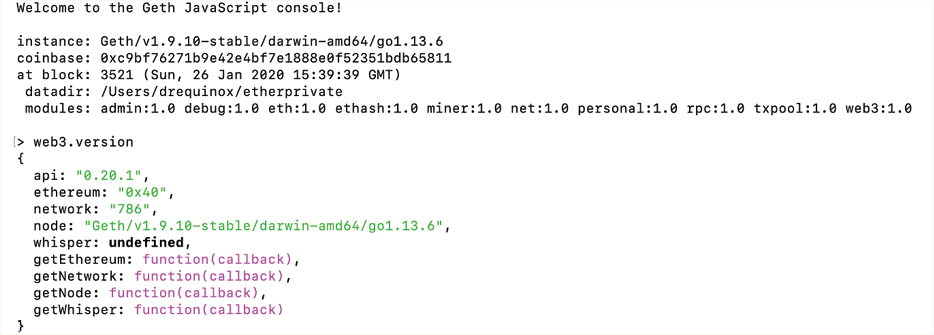Exploring Web3 with Geth
In order to expose the required APIs via geth, the following command can be used:
$ geth --datadir ~/etherprivate --networkid 786 --rpc --rpcapi "web3,net,eth,debug" --rpcport 8001 --rpccorsdomain http://localhost:7777
The --rpcapi flag in the preceding command allows the web3, eth, net, and debug methods. There are other APIs such as personal, miner, and admin that can be exposed by adding their names to this list.
Web3 is a powerful API and can be explored by attaching a geth instance. Later in this section, you will be introduced to the concepts and techniques of making use of Web3 via JavaScript/HTML frontends. The geth instance can be attached using the following command:
$ geth attach ~/etherprivate/geth.ipc
Once the geth JavaScript console is running, Web3 can be queried:

Figure 15.1: Web3 via geth.ipc
Now that we've introduced Web3, let's consider how the Remix IDE can be used to deploy...























































